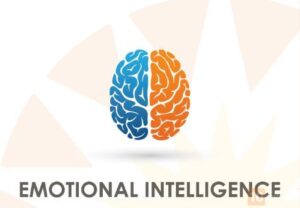Starting Off
In the evolving landscape of personal and professional development, the concept of Emotional Intelligence (EI) has garnered significant attention. However, common misconceptions prevail – often associating EI with being nice all the time and as an absence of ambition. This blog aims to unravel the layers of EI, exploring why it’s not about always being nice and certainly not incompatible with ambition or the desire for financial success.
Understanding Emotional Intelligence
Emotional Intelligence encompasses a spectrum of skills, including self-awareness, self-regulation, empathy, motivation, and social skills. Contrary to the misconception, it’s not about suppressing personal ambitions or adopting a ‘nice at all times’ facade. Instead, it involves recognizing and managing emotions effectively in oneself and others.
Realistic Assessment of Situations
EI involves a realistic assessment of situations, acknowledging both positive and challenging emotions. It’s about navigating through various scenarios with emotional balance, understanding that expressing genuine feelings, even if they aren’t always ‘nice,’ is a part of authentic human interaction.
Ambition and Drive
One of the critical aspects of EI is channeling ambition and drive constructively. It’s not about downplaying one’s aspirations but understanding how to handle the associated emotions. Ambition becomes a powerful force when coupled with emotional awareness, fostering resilience, adaptability, and effective collaboration.
Assertion Not Aggression
EI emphasizes assertion over aggression. Being assertive involves expressing one’s needs, opinions, and feelings openly and respectfully, without undermining others. It’s a skill that allows individuals to stand firm in their beliefs while maintaining healthy relationships, contradicting the notion that EI equates to constant niceness.
Handling Conflicts and Criticism
True emotional intelligence is evident in how one handles conflicts and criticism. It’s not about avoiding disagreements but navigating them with empathy and effective communication. Constructive criticism is embraced as a growth opportunity, reflecting a nuanced understanding of emotions.
Financial Success and Emotional Intelligence
Contrary to the belief that prioritizing financial success contradicts emotional intelligence, the two can complement each other. Financially successful individuals with high EI can navigate the complexities of the professional world, foster meaningful relationships, and lead with empathy and resilience.
Finally
In essence, Emotional Intelligence is a multifaceted skill set that goes beyond the simplicity of always being nice. Understanding the true essence of EI allows individuals to lead more fulfilling lives, harmonizing ambition with empathy and success with emotional intelligence. Connect with me to explore how EI can elevate your personal and professional journey.


